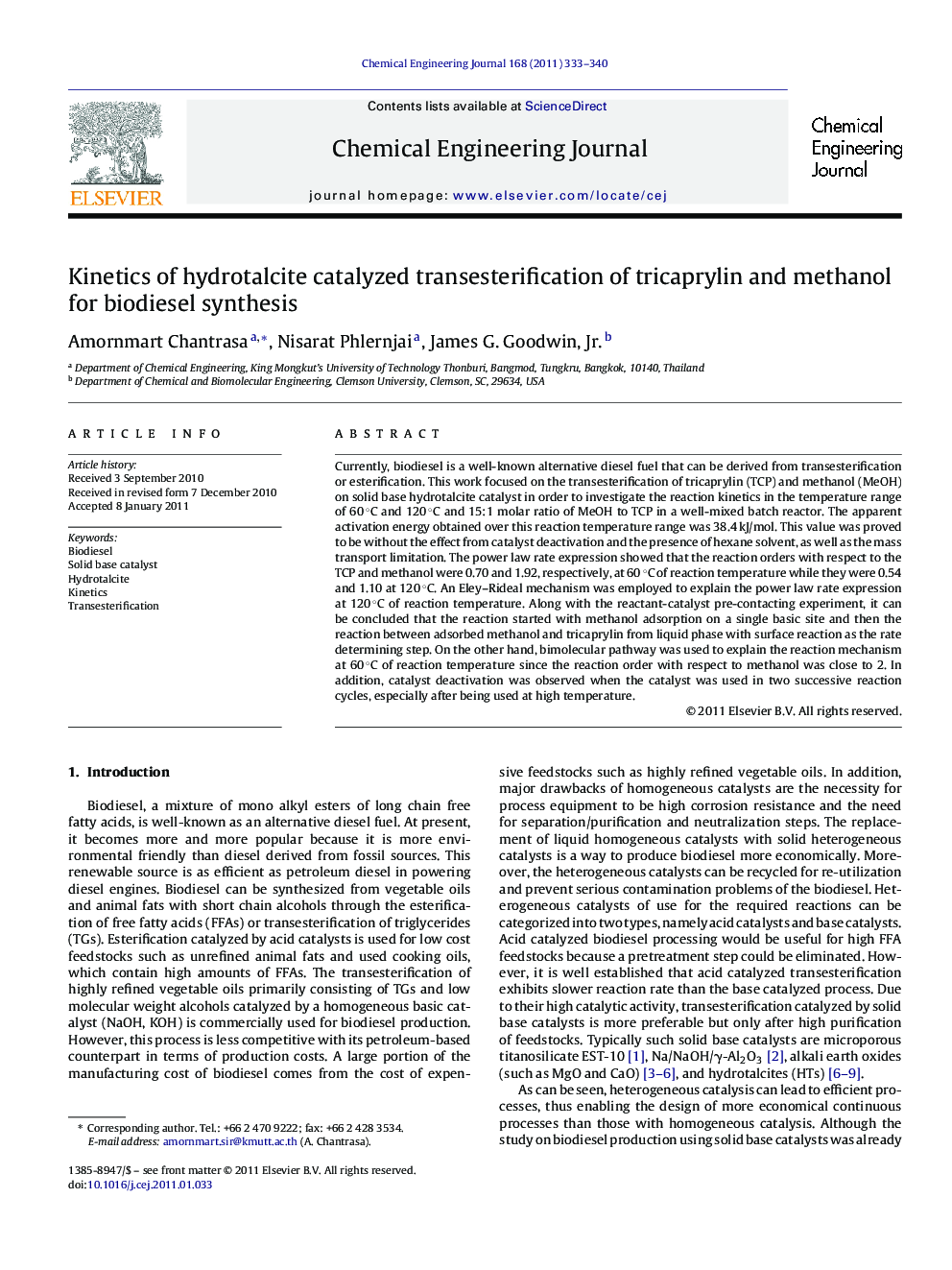| Article ID | Journal | Published Year | Pages | File Type |
|---|---|---|---|---|
| 151436 | Chemical Engineering Journal | 2011 | 8 Pages |
Currently, biodiesel is a well-known alternative diesel fuel that can be derived from transesterification or esterification. This work focused on the transesterification of tricaprylin (TCP) and methanol (MeOH) on solid base hydrotalcite catalyst in order to investigate the reaction kinetics in the temperature range of 60 °C and 120 °C and 15:1 molar ratio of MeOH to TCP in a well-mixed batch reactor. The apparent activation energy obtained over this reaction temperature range was 38.4 kJ/mol. This value was proved to be without the effect from catalyst deactivation and the presence of hexane solvent, as well as the mass transport limitation. The power law rate expression showed that the reaction orders with respect to the TCP and methanol were 0.70 and 1.92, respectively, at 60 °C of reaction temperature while they were 0.54 and 1.10 at 120 °C. An Eley–Rideal mechanism was employed to explain the power law rate expression at 120 °C of reaction temperature. Along with the reactant-catalyst pre-contacting experiment, it can be concluded that the reaction started with methanol adsorption on a single basic site and then the reaction between adsorbed methanol and tricaprylin from liquid phase with surface reaction as the rate determining step. On the other hand, bimolecular pathway was used to explain the reaction mechanism at 60 °C of reaction temperature since the reaction order with respect to methanol was close to 2. In addition, catalyst deactivation was observed when the catalyst was used in two successive reaction cycles, especially after being used at high temperature.
